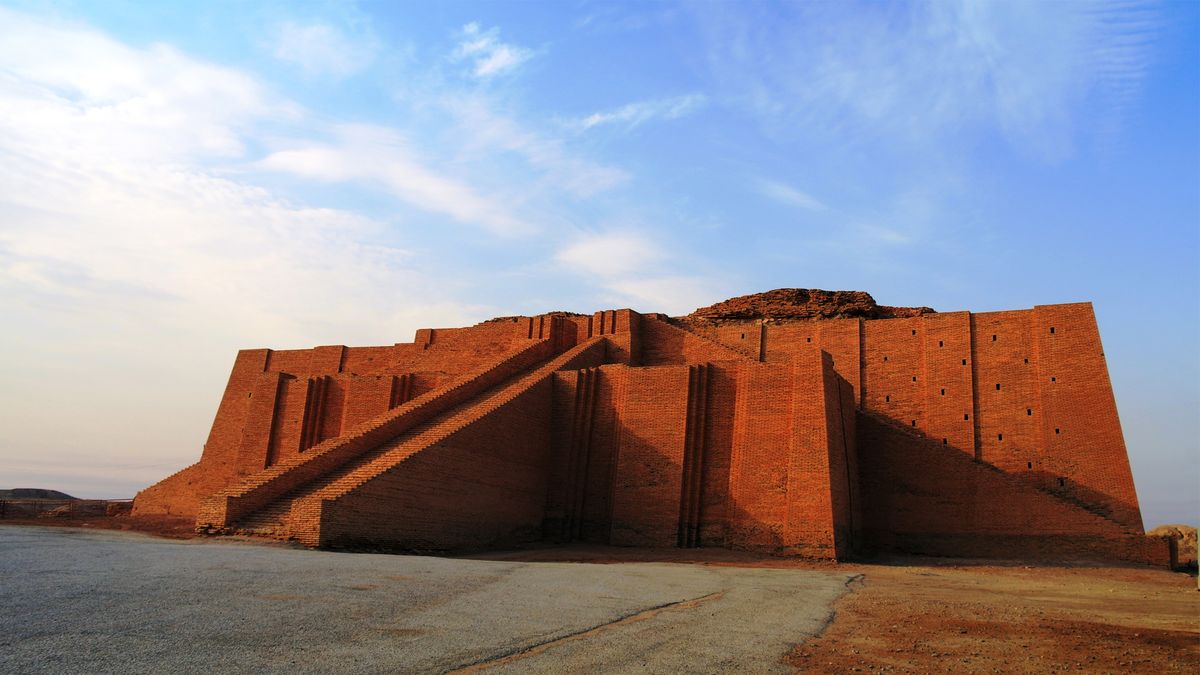Anthropology
Related: About this forumWhat's the world's oldest civilization?
By Tom Metcalfe published 2 days ago
Did tHere we see what is likely a restored ziggurat in the Sumerian city of Ur, in what is now Iraq. (Image credit: Shutterstock)
Countless civilizations have risen and fallen over the millennia. But which one is the oldest on record?
About 30 years ago, this question seemed to have a straightforward answer. Around 4000 B.C., the earliest phase of the Sumerian culture arose as the oldest civilization in the Mesopotamia region, in what is now mostly Iraq. The Sumerians are named after the ancient city of Sumer, which was a few miles south of the modern city of Kut, in eastern Iraq. Archaeologists call the earliest Sumerian phase the Uruk period(opens in new tab), after the equally ancient city of Uruk about 50 miles (80 kilometers) to the southwest, where many of the oldest Sumerian artifacts were found.
But evidence uncovered in the past few decades indicates that the Sumerians have a few contenders, including ancient Egypt, for the title of "oldest civilization."he first civilization arise in Mesopotamia, or elsewhere?

The definition of what makes a civilization is vague, but generally a culture has to achieve several hallmarks, notably urbanism — that is, cities — irrigation and writing; and the Sumerians had all three. After about 2000 B.C., the Sumerian civilization led directly to the Babylonian civilization in Mesopotamia, which is credited with discovering mathematical truths such as trigonometry and prime, square and cube numbers — concepts further developed by the ancient Greeks more than 1,000 years later.
More:
https://www.livescience.com/what-is-oldest-civilization
I could argue that ours is the oldest civilization because I could swear I aged a century every time the former president sent out a tweet.
Bernardo de La Paz
(52,848 posts)Awkward writing at best. I'm thinking they meant to write "what a restored ziggurat would look like".
Their writing does not make clear whether that is "an artist's conception" or an actual restoration. I have not heard of the latter and the state of the art for "artist's conceptions" is highly realistic.
.
Regardless, thanks as always for your wonderful posts and subject matter, Judi!
Judi Lynn
(163,046 posts)Seeing the artistic view of how the structure might have appeared was thought-provoking, if there was enough information to assist his design!
I recall being done in so many years ago when it started seeming startling to me that Egyptian building looked so clean, and futuristic. I almost couldn't get past it.
That amazement stays with me now studying almost all ancient remnents of of ancient structures. So much time is needed to grapple with it all!
Thank you for your comments, much appreciated. ![]()
RipVanWinkle
(266 posts)I am currently reading "The Empires of Atlantis", by Marco M. Vigato. His story is very compelling.
NewEnglandAutumn
(211 posts)Thank you for sharing.
dhol82
(9,518 posts)pecosbob
(7,904 posts)rubbersole
(9,451 posts)Thank you, Judi. I always appreciate your knowledge and intellectual curiosity. 😌
The smartest girl in class!
Warpy
(113,131 posts)Anthropologists studying the Aborigines in Australia made a pretty startling discovery a couple of yeas ago, a description within their oral history of an erupting volcano, complete with its location. That volcano erupted close to 40,000 years ago. They didn't build empires or more than a couple of city states, but you can't deny their civilization.
https://www.science.org/content/article/aboriginal-tale-ancient-volcano-oldest-story-ever-told
We also know that the civilization that produced Gobekli Tepe was thousands of years older than Ur, and the founding of Jericho dates to the same period. In addition, there is some suggestion that Ur was founded as a trading outpost for another civilization, as fragmented history from the region describes god-men arriving by sea from the south. Deep time gets murky fast.
I have to give the Sumerians their due, they came up with math, astronomy, physics, and other things we're just catching on to. However, they weren't the most ancient civilization, not by at least 5,000 years. In addition, we have no idea what could be drowned, buried, and long forgotten on continental shelves that were exposed and likely habitable during the Ice Age(s).
Interesting article, though.
I also disagree about irrigation being a hallmark of civilization. You can't deny the Aztecs were civilized (although I'd never have wanted to live there). Their strategy was to build floating islands out of wood and woven mats to sit on top of the water, the plants growing in a shallow layer of soil and watered from below. It was more hydroponics than irrigation, a novel solution that worked well enough to feed their city.
wnylib
(25,190 posts)of civilization.
I also question how civilization is defined. The Inca, for example, never developed a writing system, but are often referred to as a civilization and had a unique record keeping system.
Coincidentally, the Iroquois in what is now NY, also used a knotting system of shell strings for records and contracts between individuals, used woven shell belts depicting symbols as treaties, and had a sophisticated governing system with an oral "constitution." They had semi domesticated animals, horticulture, semi permanent towns and villages, a massive trade network, but were not a civilization. They had no permanent structures or monuments and no urban centers.
Many societies have had impressive social/political structures or material structures without reaching a state that we would call civilization. Others, like the Aztecs were definitely civilizations, but resolved some things in unique ways.